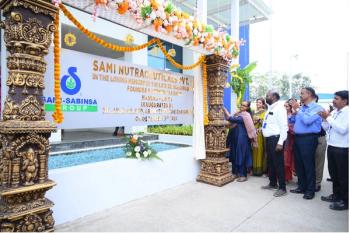
Rainforest Alliance Hits Milestone toward Sustainable Coconut Oil Production
Three hundred farmers in the Philippines now produce copra that meets the standards of the Sustainable Agricultural Network.
More than 1000 farmers in the Philippines have been trained in sustainable agricultural practices for the production of copra, the dried coconut flesh needed to process coconut oil. As of June 2015, 300 of those small farmers now produce the world’s first copra certified by Rainforest Alliance (New York City) for meeting the standards of the Sustainable Agricultural Network (SAN), according to a press release from coconut oil supplier Cargill (Minneapolis).
The milestone of 1000 copra farmers trained in sustainable practices comes as a result of a project that began in September 2011 as a joint effort by Deutsche Gesellschaft für Internationale Zusammenarbeit (GIZ) GmbH (Bonn, Germany), BASF (Florham Park, New Jersey), and Cargill. The project takes place on the southern Philippine island of Mindanao and is partly financed by the German Federal Ministry for Economic Cooperation and Development (BMZ).
Through the program, farmers on Mindanao have been trained in good agricultural practices such as the right use of fertilizers, intercropping, and replanting-education that should allow enable the farmers to increase long-term yields. The group of 1000 farmers have also been trained on the standards of the SAN and received access to new drying technology for high-quality coconut flesh, says Cargill.
“Our ability to feed the world depends on successful farmers at every level of production, including smallholders,” said Efren Barlisan, general manager, Cargill Philippines. “Cargill works with millions of smallholder farmers worldwide to help them increase their agricultural productivity, yield, and profitability to improve their livelihood in a sustainable manner.”
The Philippines is one of the leading global producers of coconuts with 15 billion coconuts produced per year and coconut export earnings totaling approximately $1.8 billion, according to Cargill. Unfortunately, many of the coconut-producing areas-some 26% of the country’s land use-are among the poorest and least developed regions in the Philippines.
The sustainability project also supports coconut farmers in forming legal producer entities so they can sell directly to the mill rather than relying on middlemen, a move that Cargill says could increase farmers’ income by 15%. 2,500 small farmers and their families were also able to receive PhilHealth government health insurance through the project, according to a press release.
Read more:
Michael Crane
Associate Editor
Nutritional Outlook Magazine
Newsletter
From ingredient science to consumer trends, get the intel you need to stay competitive in the nutrition space—subscribe now to Nutritional Outlook.




